Belarus Remains a Thorn in the Eastern Partnership
Ralitsa Kovacheva , September 30, 2011
 Belarus refused to participate in the EU-Eastern Partnership summit in Warsaw. Initially the country had to be represented by its ambassador in Poland after Foreign Minister Sergei Martynov refused to take part in the forum. The official explanation was that he was in New York for the UN General Assembly session. Polish top diplomat Radoslaw Sikorski described this decision as another step in the "self-imposed isolation" of Belarus, quoted by Russian news agency Novosti.
Belarus refused to participate in the EU-Eastern Partnership summit in Warsaw. Initially the country had to be represented by its ambassador in Poland after Foreign Minister Sergei Martynov refused to take part in the forum. The official explanation was that he was in New York for the UN General Assembly session. Polish top diplomat Radoslaw Sikorski described this decision as another step in the "self-imposed isolation" of Belarus, quoted by Russian news agency Novosti.
Given that almost all countries were represented at the forum by heads of states  or governments, with the decision to send its ambassador in Warsaw Minsk not only demonstrated its reticence but also imposed additional conditions for the participation of Victor Gaisenok - the Polish side not to limit his status and form of participation as a head of the Belarusian delegation.
or governments, with the decision to send its ambassador in Warsaw Minsk not only demonstrated its reticence but also imposed additional conditions for the participation of Victor Gaisenok - the Polish side not to limit his status and form of participation as a head of the Belarusian delegation.
Yesterday, when the summit was officially opened, there was yet no final decision on the issue from Belarus. At a joint briefing with Polish Prime Minister Donald Tusk, European Council President Herman Van Rompuy said he had a meeting with the Belarusian opposition. He thanked the Polish hosts for organising this "unprecedented" meeting and stressed that "the EU remains attached to the vision of democratic Belarus with its proper place in European cooperation."
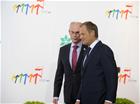 "In the case of Belarus, the EU's policy is clear. We cannot re-engage fully without clear progress towards democratisation and respect for human rights. This means, not least, the immediate release and rehabilitation of all political prisoners and the engagement in a genuine political dialogue with the opposition."
"In the case of Belarus, the EU's policy is clear. We cannot re-engage fully without clear progress towards democratisation and respect for human rights. This means, not least, the immediate release and rehabilitation of all political prisoners and the engagement in a genuine political dialogue with the opposition."
European Commissioner for Enlargement and Neighbourhood Policy Stefan Fule 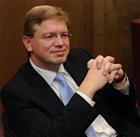 sharply criticised Belarus too. "Clearly, our relations with Belarus remain a thorn in the side of the Eastern Partnership. Following the crackdown on the opposition and civil society, we re-imposed sanctions against the Minsk regime. However, we will not isolate Belarusian people. I remain personally committed to engagement with the opposition, human rights defenders and free media for as long as it takes."
sharply criticised Belarus too. "Clearly, our relations with Belarus remain a thorn in the side of the Eastern Partnership. Following the crackdown on the opposition and civil society, we re-imposed sanctions against the Minsk regime. However, we will not isolate Belarusian people. I remain personally committed to engagement with the opposition, human rights defenders and free media for as long as it takes."
The Commissioner noted that, as a result of the events in its Southern neighbourhood, the EU was putting an even stronger emphasis on promoting sustainable democracy, because "long term stability cannot be assured by non-democratic regimes."
Although President Van Rompuy vowed to urge Belarus's ambassador to Poland to deliver his message in Minsk, he did not have this opportunity because the next morning when the main part of the forum had to start, the seats of the Belarusian delegation was empty.
In a statement issued this morning the foreign ministry in Minsk said that the organisers of the summit had made impossible the participation of Belarusian delegation, undertaking "unprecedented discriminatory steps with regard to Belarus." "They refused to send an invitation to the Head of the Belarusian State," while the appointed head of the Belarusian delegation was "restricted in attending the events of the Summit", the statement reads.
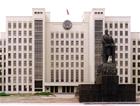 "Belarus actively worked in the interests of the Summit preparation and intended to participate in its events. However, in such conditions participation in the Summit is not possible as a partnership cannot be based on discrimination." The statement notes that any decisions of the Summit, affecting the interests of Belarus and adopted without its direct consent, would not be legitimate. According to Minsk, without its participation "the Eastern Partnership loses seriously its significance". The Belarusian position is that the country is ready to participate in the initiative, "but solely on the principles of a real, not fake partnership".
"Belarus actively worked in the interests of the Summit preparation and intended to participate in its events. However, in such conditions participation in the Summit is not possible as a partnership cannot be based on discrimination." The statement notes that any decisions of the Summit, affecting the interests of Belarus and adopted without its direct consent, would not be legitimate. According to Minsk, without its participation "the Eastern Partnership loses seriously its significance". The Belarusian position is that the country is ready to participate in the initiative, "but solely on the principles of a real, not fake partnership".
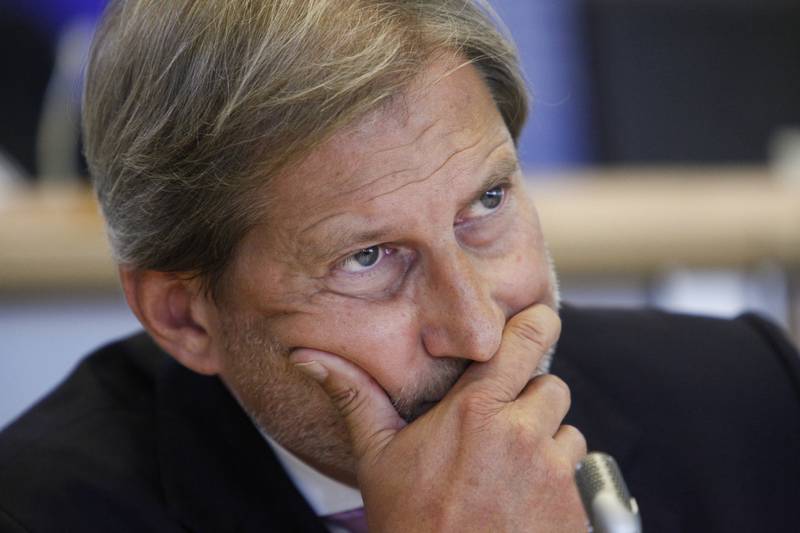 Johannes Hahn | © European Parliament
Johannes Hahn | © European Parliament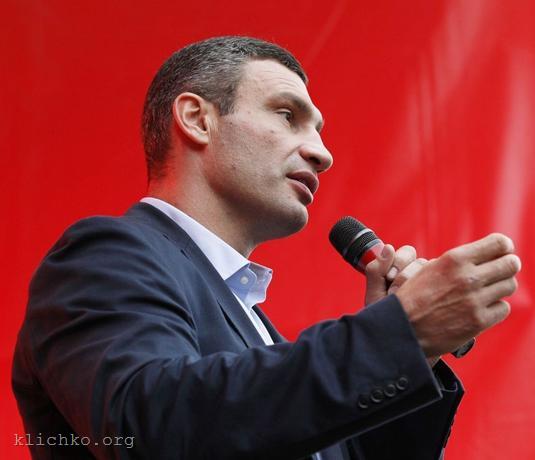 | © klichko.org
| © klichko.org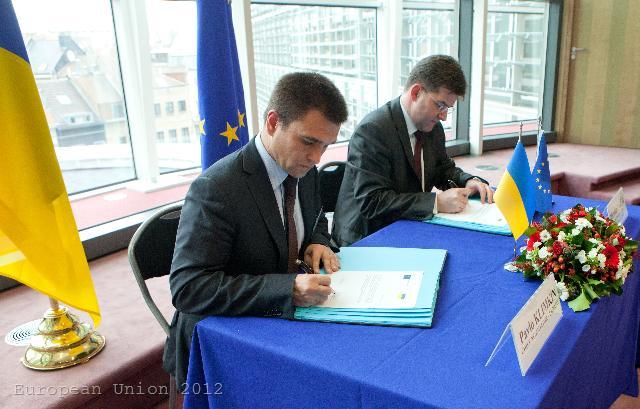 | © European Union 2012
| © European Union 2012